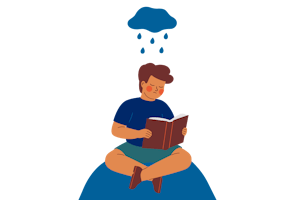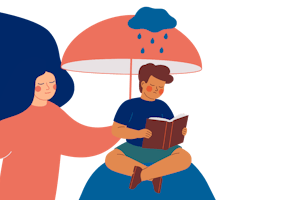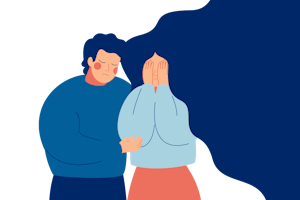When do you need professional help?
In most cases, the situation will improve on its own if the child receives good support from family and friends. Sometimes, the child needs more help. If the reaction has lasted for weeks or worsens over time, it may be time to talk to a specialist.
Below are some examples of when it is appropriate to contact a professional.
- A long-term change in sleep habits and eating habits, which may have become an eating disorder.
- Chronic stomach pain or headaches that do not have a medical explanation.
- A negative change in school performance.
- A lack of interest in school activities and leisure activities.
- Frequent and extreme mood changes.
- Chronic sadness, depression, anxiety, and fear.
- Panic attacks.
- Major behavioral changes.
- Increased aggression.
- A lot of regression in development.
- Talk about self-harm, death, or hopelessness.
- Alcohol or drug problems.
- Risk behaviour (which puts the child's life at risk).
Talking to a professional does not mean the child will be diagnosed with a mental disorder. It does not mean they will have long-term problems or that the guardians have failed the child. We can fix so many things in our lives ourselves, but sometimes we need a specialist.
Talking to an unrelated person about difficult events or feelings is healthy and can help us to understand them better and see them from a different perspective.





